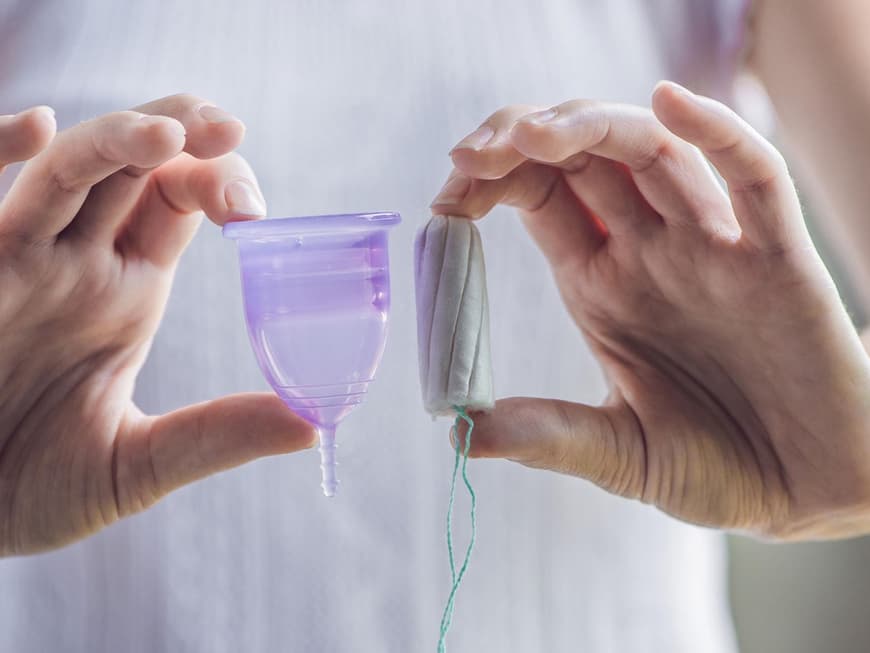
In the course of her life, a woman uses around 17,000 pads or tampons. However, the latter are not harmless from a health point of view. After all, it is important to remember that the vaginal area is a particularly sensitive zone of the female body. Normally, the vagina contains a number of different strains of bacteria and yeasts which, among other things, keep the pH value of the vaginal secretions in balance. If a tampon is inserted into this extremely sensitive area, the natural balance may be disturbed. In addition, the menstrual blood can no longer flow freely. This not only causes painful menstrual cramps, it also leads to the menstrual blood remaining in the vagina for longer than usual.
This in turn leads to the increased development of certain bacteria that can upset the vaginal balance. In addition, conventional tampons often leave fibers inside the vagina after removal. However, some ingredients pose a health risk if they are in contact with the body for too long. One of these substances is dioxin, a by-product of the bleaching process, which has been linked to the development of cancer, endometriosis and infertility. So there are several arguments against the permanent use of tampons. But what can women do instead to have sustainable, hygienic and relaxed menstruation?
Period underwear and free bleeding
The most natural way to deal with your period is to do without any kind of menstrual product. Free bleeding is the name given to this trend from the USA, where women simply let the blood run, so to speak. Over time, you should then be able to sense when the blood needs to flow - similar to the urge to urinate. Supporters of this trend believe that women can get in touch with themselves and their bodies better this way. They are also committed to removing the taboo surrounding women's periods, which are often still a source of shame in everyday life. If this is a bit too much for you, you can opt for practical period underwear instead. Period underwear also has the advantage that you don't have to insert a product directly into the vagina. Instead, the blood can flow out and is collected by the integrated insert. Period underwear is now virtually indistinguishable from conventional underwear - and is also extremely sustainable: after each use, it can simply be machine washed and reused.
Menstrual cups
Menstrual cups have been available for some time as a practical alternative to tampons. While they were more of a niche product a few years ago, you can now buy them in any drugstore. They are a type of silicone cup that is inserted into the vagina. By moving the menstrual cup back and forth, it can unfold and is held in place by the pelvic floor muscles. This creates a vacuum, which ensures that the cup does not leak or slip. Unlike tampons, the menstrual blood is not absorbed. Instead, it can flow freely and is collected by the cup, which is then emptied once or twice a day. As the menstrual blood does not come into contact with oxygen, there are no odors. Even women with heavy periods can go for several hours without having to empty the cup. Once the period is over, the menstrual cup is simply boiled out. This means it can be used for up to ten years.
Cloth pads
Unlike disposable pads, which can only be used once, cloth pads are an environmentally friendly alternative. Most models are made from organic cotton, which makes them soft and comfortable to wear. The cloth pads work in the same way as conventional products - they are placed in the underwear and absorb the menstrual blood there. Many suppliers sell ready-made sets for the entire cycle. After use, the cloth pads are rinsed out with cold water and cleaned in the washing machine at 60 degrees. Like underwear and other items of clothing, they can be worn for several years and used again and again.
